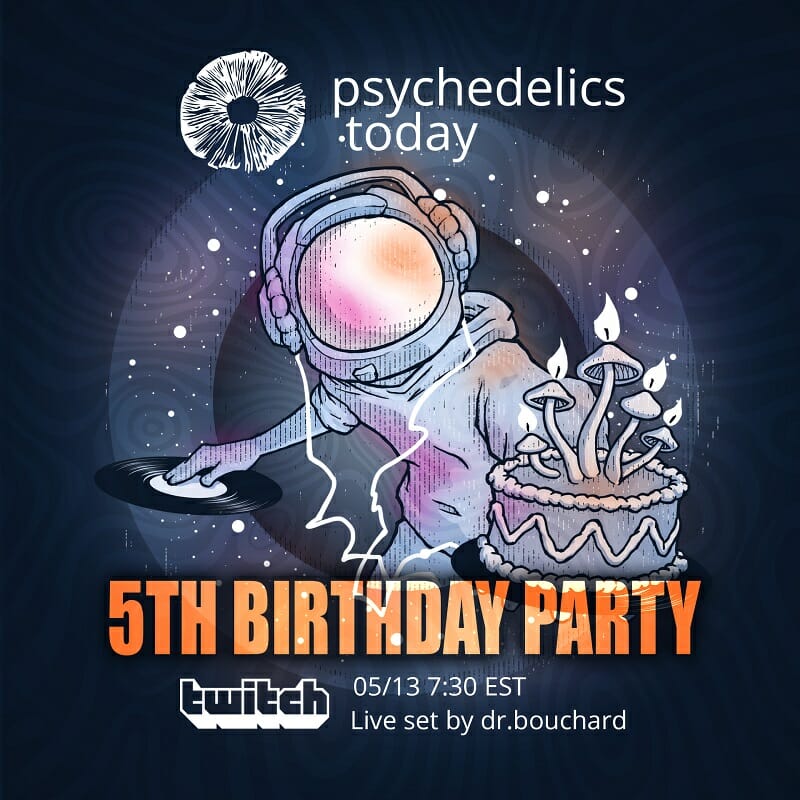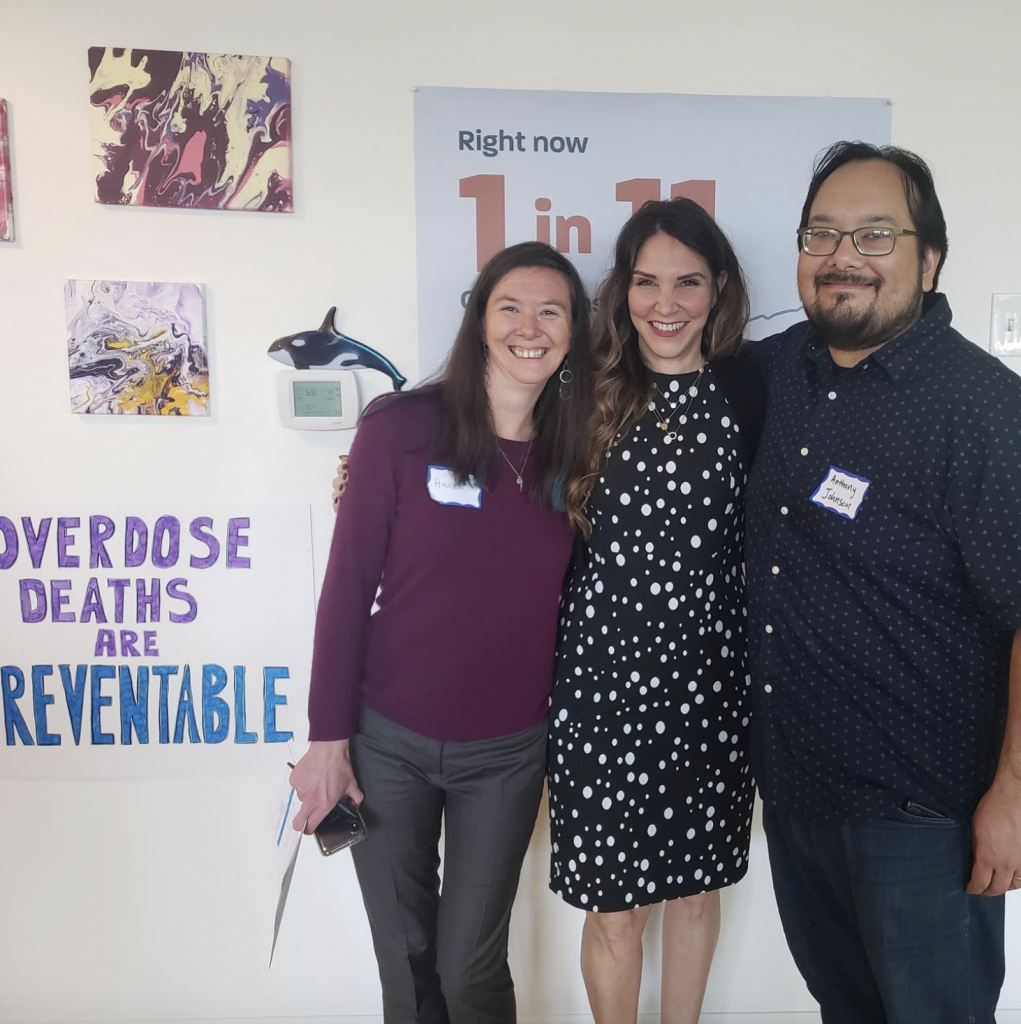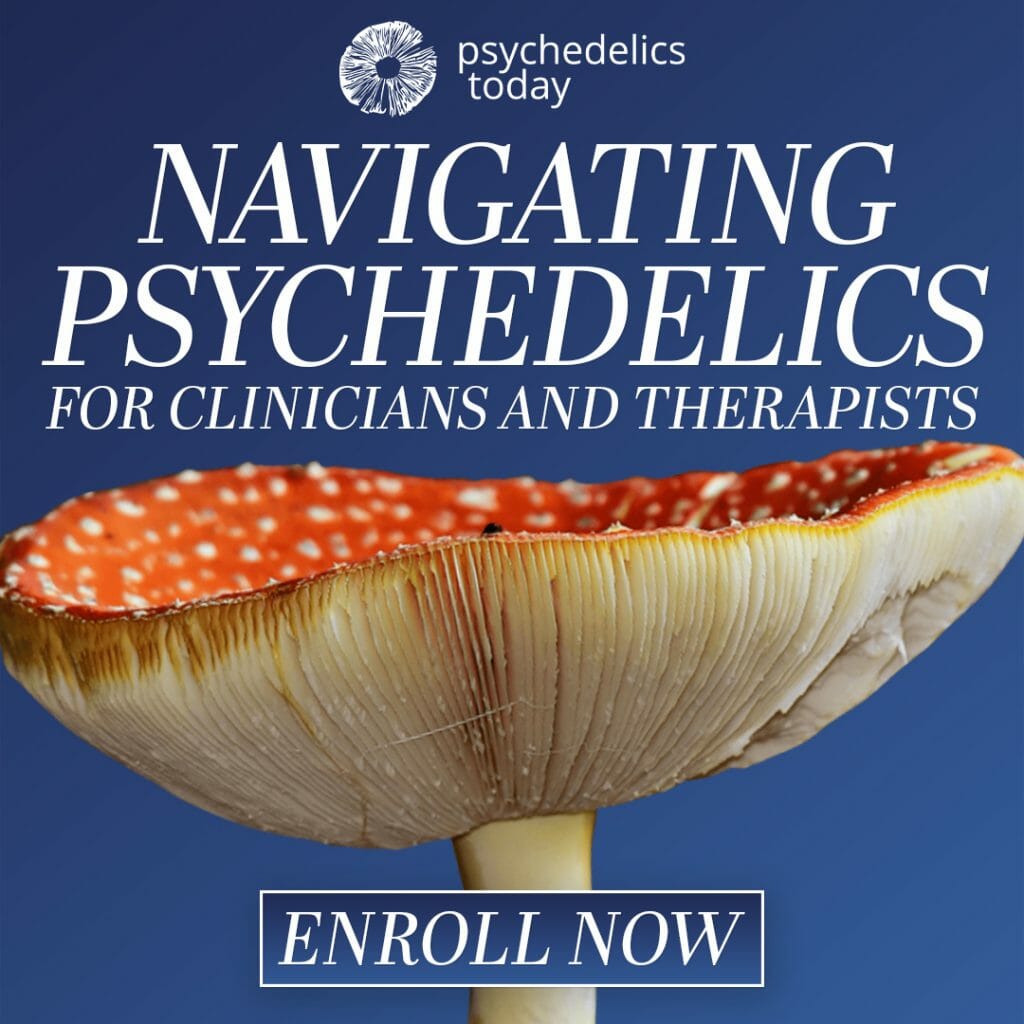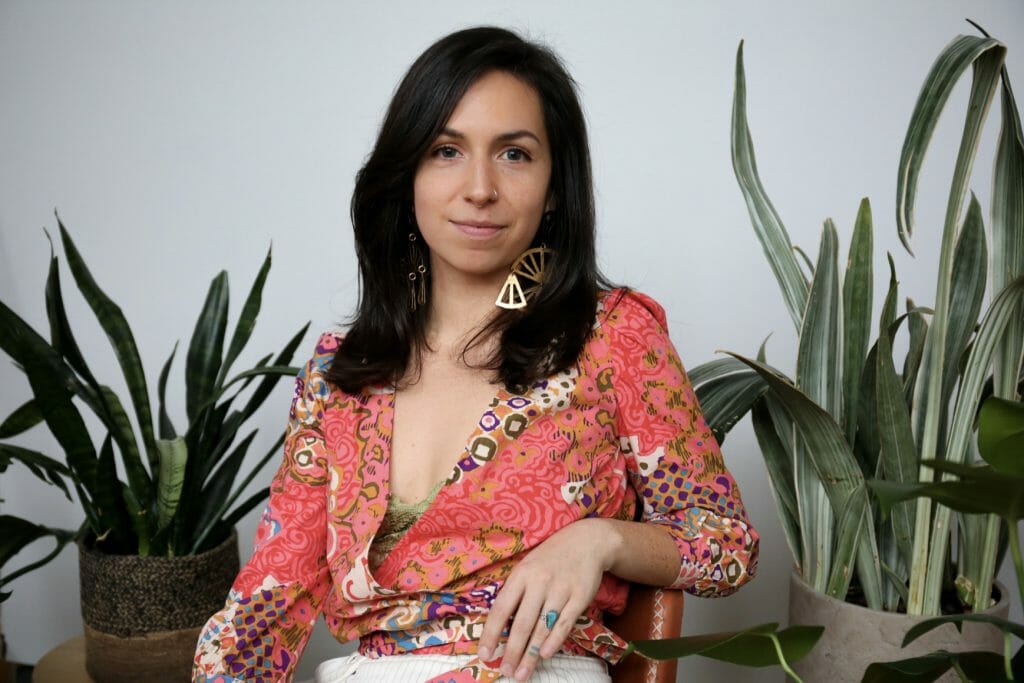By Rebecca Martinez
Taking a deep look at what Measure 110 did and didn’t do in Oregon, and speaking with one of the measure’s Chief Petitioners, Anthony Johnson, on the future of drug policy reform.
“There’s never been a better time to be a drug policy reform activist,” says Anthony Johnson, a Chief Petitioner of Oregon’s Measure 110. Amid a sea of despairing headlines, it’s refreshing to hear a streak of optimism, especially from someone who has been working in public service for over twenty years.
Measure 110, also known as DATRA (the Drug Abuse Treatment and Recovery Act), received 58% of the Oregon vote in November. Similar to Portugal’s drug approach, the measure decriminalized the personal use and possession of all drugs. In addition, it allocated cannabis tax dollars and prison savings to pay for expanded drug treatment and other vital services. This progressive policy was passed alongside Measure 109, which created a legal statewide psilocybin therapy program.
Measure 110 was implemented statewide on February 1st, 2021. Addiction recovery centers and services must be available in each of the state’s 16 coordinated care organization regions by October, 2021.
What Measure 110 Does:
- Removes criminal penalties for low-level possession of drugs. The amounts are as follows:
- Under 1 gram of heroin
- Under 1 gram, or fewer than 5 pills, of MDMA
- Under 2 grams of methamphetamine
- Under 2 grams of cocaine
- Under 40 units of LSD
- Under 12 grams of psilocybin
- Under 40 units of methadone
- Fewer than 40 pills of oxycodone
- Allocates $100 million in state funding to expand behavioral health, addiction, recovery, housing, peer support and harm reduction services and interventions.
- Establishes an Oversight and Accountability Council, made up of people who have direct lived experience with addiction, along with service delivery experts.
- Reduces the criminal penalty for larger amounts of drugs from a felony to a misdemeanor.
- Replaces the misdemeanor charge for small possession (which held a maximum penalty of 1 year in prison and a $6,250 fine) with a fine of $100. This fine can be waived by completing a health screening within 45 day of receiving a citation.
- Nearly eliminates racial disparities in drug arrests, according to an independent analysis.
The Measure Does Not:
- Legalize or create a regulated supply of drugs.
- Change the criminal code related to drug manufacture and sale.
- Change the criminal code for other crimes which may be associated with drug use, such as theft and driving under the influence.

What About Other Drugs That Aren’t Listed?
I spoke with John Lucy, a Portland-based attorney focused on cannabis and business law, to clarify. He explained that Measure 110 covers all controlled substances, Schedule I through IV. The defined amounts in the bill language were provided for the more well-known drugs. So in short, Measure 110 really does make simple small possession a Class E violation for most drugs (with some A misdemeanors for larger quantities of the drugs listed that don’t meet commercial drug offense guidelines).
To be more specific, substances such as GHB (Schedule I and III), 2C-B (Schedule I) and Fentanyl (Schedule II) are now all class E violations, subject to the new $100 citation.
Why Measure 110 Matters for Racial Justice
The Oregon Criminal Justice Commission (OCJC) is an independent government body which is responsible for research, policy development and planning. In 2020, the Secretary of State released a Racial and Ethnic Impact Report, which explored the potential impacts of Measure 110. The findings make it easier to understand why Oregonians voted overwhelmingly in favor of this measure.
According to analysts, Measure 110 is slated to:
- Prevent 8,000 arrests.
- Reduce drug convictions of Black and Indigenous Oregonians by a whopping 94%.
- Save between $12 million to $48.6 million from ending arrests, jailings, and convictions.
Also noteworthy are the more systemic solutions that could come from this measure. According to the OCJC’s report:
“This drop in convictions will result in fewer collateral consequences stemming from criminal justice system involvement, which include difficulties in finding employment, loss of access to student loans for education, difficulties in obtaining housing, restrictions on professional licensing, and others,” the report says, adding: “Other disparities can exist at different stages of the criminal justice process, including inequities in police stops, jail bookings, bail, pretrial detention, prosecutorial decisions, and others.”
Q & A with Anthony Johnson on Current and Future Drug Policy Reform

I spoke with Chief Petitioner of Measure 110, Anthony Johnson, about the treatment-not-jails approach and where he hopes the drug policy reform movement will go next.
Rebecca Martinez: It’s a little late, but congratulations on the passage of 110. What a huge accomplishment!
Anthony Johnson: It’s a step in the right direction. Oregon took a big sledgehammer to the failed drug war. But I would say there is still more work to be done around the criminal justice element, making sure that harm reduction, treatment, and recovery programs are fully funded. And there’s still more work to be done expunging past criminal offenses that people have suffered from.
RM: Do you foresee new organizations being formed under this measure, or will the funding go to expand existing ones?
AJ: Right off the bat, at least with the initial funds, it will go to groups like Central City Concern and Bridges to Change that set up sober housing living situations and want to expand their programs so they can help people find places to live, get job training and experience, and be able to move on with their lives. Programs like that can expand. There could be rural organizations that understand there are places in Oregon where people have to travel hours to receive drug treatment. Groups could get funding for mobile units and meet people where they are. And then we have organizations like Outside In, who may want to expand the ability to provide NarCan, or fentanyl-testing supplies so that lives can be saved.
So in the short term, it will be organizations that are already up and running, doing good work and have experience applying for these types of funding sources. Over time, I could see new organizations established based upon lessons learned and the needs of the community.

RM: When it comes to drug testing [as in checking for purity, not to be confused with urine drug testing], is this something we currently have in some form, and if not, is it legal and allowed under this new program?
AJ: Right now, organizations can get funding to expand programs to test drug supplies. There are organizations working today in Oregon that provide test strips so people can test their own drugs and make sure they are not fentanyl. I’m unaware that this conflicts with federal law if a group is just supplying testing equipment. It’s a little different than say, a safe consumption site where there is a violation of federal law happening on site. It’s more like, “Here’s your kit,” and you’re on your way.
When we talk about the interplay and all these issues of impact, I want to highlight one point, and I believe we did this effectively during the campaign. I hope this can reverberate all throughout Oregon: When people talk about drug policy changes, ultimately it is not about the drugs. It is about the people. Our loved ones. No matter where you live, who you are, you have family members using drugs, most likely illegal drugs, but definitely legal drugs, be it alcohol, tobacco, or prescription drugs.
Knowing the truth about these drugs, treating them without stigma so that when people who do have an issue, they’re willing to come forward and there are resources available to them. Ultimately, what do you want for yourself or a loved one? How do you want to be treated? Do you want them arrested, put in jail, fired, given a scarlet letter “F” labeling them a felon for the rest of their lives so they can’t get certain housing opportunities? Or do you want them treated with dignity and provided resources if they need help. Remember that the majority of drug users actually don’t need help and can lead productive lives.
When mainstream media stories are written, headlines are going to be as inflammatory as possible. The photo’s gotta be needles and lines, razor blades, if they can they throw some guns in the picture too, but that’s not a realistic representation of life in America. As we move forward, we want to be compassionate, empathetic, end the stigma, and treat people how we want to be treated.
When people talk about drug policy changes, ultimately it is not about the drugs. It is about the people.
RM: I have two immediate family members who have been incarcerated. Is there a pathway to ending sentences for people who are serving time for substances that are no longer illegal? Or, is it: “What’s done is done”?
AJ: Something could be done about it, for sure. And we were able to accomplish some of this work with cannabis. We could have something passed that provides a study saying, “Who is in prison for these substances that are now decriminalized?” Or, “The offense was reduced from a felony to a misdemeanor and their prison time should be reduced and they should be let out.”
For whatever reason, there’s often some reluctance around that. I don’t quite understand it. The way I see it, when we legalize cannabis or drug possession, voters and society are recognizing that the state has made a mistake. Cannabis shouldn’t have been illegal in the first place. These small amounts of drugs should not be a felony or a misdemeanor. So, why are people in prison and why do people have criminal records when the state made the mistake?
It will take further legislative changes to accomplish this. We still have such a huge stigma around drugs. Cannabis has taken 25 years. It may be due to coronavirus and other concerns, but really there’s been no movement on further decriminalizing drug possession yet.
RM: What do you want to see moving forward?
AJ: What I want to see, what I’m working for and will continue advocating for, is automatically expunging old convictions. Automatically releasing people from prison. Following Measure 91 [Oregon’s Legal Marijuana initiative, on which Anthony was also Chief Petitioner], one of the most proud moments of my activist career was reading an article on OPB.org in which a man said he cried tears of joy because his cannabis delivery conviction could finally be expunged from his record, after following him for 30 years of his life.
Now, six years later, I am still proud of that, but I am struck that we didn’t go far enough. He was in a position to hire an attorney, pay the court fees, pay for the filing. [But] expunging your criminal record should not depend on your ability to hire an attorney. The law is the law. It should just be off everybody’s record. It should not be based on how much money you have or whether you know how to jump through legal hoops.
RM: Have you heard interest from people in other states who want to create models designed after 110? Given what you know now, what would be the dream model that you believe could be pushed through in more progressive states?
AJ: I have been in touch with people interested in enacting similar policies, and even city or countywide changes where statewide is not feasible. The cannabis movement did the same thing with local efforts. I definitely support anything that moves the issue forward. I became an activist over 20 years ago and I definitely see a key change in where we are and we are definitely going to move forward in other states. My dream model would be largely based in Oregon.
Now, the possession limits of what you decriminalize should be examined and should be realistic around peoples’ usage. One of the critiques I heard a lot from addiction doctors was that the possession limits we decriminalized in Measure 110 were, really, too low for a lot of users.
Even potentially, so long as someone is not selling, [general possession] could be decriminalized. Automatic expungements of past offenses and early prison release, and I think there should be funds allocated for treatment, harm reduction and recovery for those who need it.
This should be looked at as an extension of our healthcare needs. States should also be looking into studies into the medicinal benefits of various psychedelics, be it psilocybin mushrooms or MDMA. Slowly but surely, we are getting research moving forward at the federal level, but it is really up to the states to move these things forward.
In the future, something like 109 and 110 could be combined.
RM: What’s your take on city resolutions such as Decrim Nature or the Plant Medicine Healing Alliance?
AJ: I support anything that moves the issue forward and educates people. My one caveat [about Decrim Nature and the Plant Medicine Healing Alliance] is I don’t want anybody to possess larger amounts of these drugs [in Oregon] than what Measure 110 allows, believing they are okay under state law because of a city resolution. A city cannot make something legal that the state has made illegal.
This is a problem with not having a city court, and this is something I look at when we are planning future drug policy reform measures. Cities that have their own city court, such as Columbia, Missouri where I went to undergrad and law school, can pass a measure and force the city prosecutor and police to keep that case within city courts and not send it to county or state [court], or refer it to the feds. So in these places, you can actually change the law [at the city level].
The city can’t make, say 28 grams of psilocybin mushrooms legal if the state says 12. It could be de facto legal, if the district attorney chose not to prosecute people, but DA’s change and it may not always be that way. [It’s then up to] local police discretion… it could be “lowest law enforcement priority,” but they could still arrest you.
RM: If it is on the discretion of the police, is it worth putting resources into these city-based resolutions? The last thing any of us wants is blood on our hands or anyone having a brush with the law because they thought they had legal protection when they didn’t.
It is imperative for all advocates to do what they can to be open. Lowest law enforcement priority measures are symbolic measures. If you are not actually changing the law, people can still be arrested and convicted. There could still be a lot of good out of that, but we need education that helps people realize this doesn’t actually change the criminal code. It’s up to advocates to make sure people know the truth of the matter. We don’t want to do harm. That said, if anything is moving the issue forward, I tend to support it. My focus is on changing the law, but I support anything that’s chipping away at the drug war. We should be honest about the pros and cons.
We want to let science, truth, and common sense guide us. We need to be truthful about what a lowest law enforcement priority measure does.
Expunging your criminal record should not depend on your ability to hire an attorney. The law is the law. It should just be off everybody’s record.
RM: What would you say to those who are pro-psychedelics who are new to the idea of broader drug policy reform?
This is something I’ve battled within cannabis legalization, which I’ve been involved in for over 20 years. Early on, and still to this day, there was cannabis exceptionalism. People had the attitude of, “Don’t arrest us [cannabis users]. Arrest these other people who use heroin, or meth, or these other drugs.” And now we’re seeing the same thing with psychedelics.
In the end, I believe people need to do their best to be empathetic to the situations people are born into, how they’re raised, the traumas they go through, and the drugs that are used. If you were born in a different city, state, whatever… you may have used different drugs than what you use today.
When I first told people in cannabis activism that I was working on 110, they were like, “You’re not going to decriminalize meth, right?”
Bottom line is: Arresting and convicting people, whatever the drug is… it’s counterproductive. Throwing someone in jail and taking away their education, housing and job opportunities is not good for them or society. We have to set aside our feelings about drugs because we believe some substances are better than others and that [certain] people should be treated better than others. We all have circumstances and hardships. No matter the drug of choice, arresting, criminalizing and stigmatizing them is a counterproductive policy.
We always need to come back to that. We need to appeal to people’s compassion and empathy. We cannot arrest and jail our way out of people using drugs.
RM: You make an important point. You’re touching on the question of: What does punishment do to us? Does it move us closer or further from the society we want to have?
We have to change the conversation. Imagine the headlines you’d see if other drugs caused the consequences we see with alcohol. Car accidents, death, abuse, other accidents, all these bad decisions people make… if that was another drug, just imagine the headlines, every day. People committing crimes, getting in wrecks with alcohol in our systems. But for better or worse, it is accepted in our society.
But if someone came to you and said they used alcohol and thought they needed help, that is [also] totally acceptable in society. And it should be. That’s where we want to get with all drugs. No matter the substance someone uses. If people seek help, they should get the help they need. Ultimately, we need to end the stigma. It’s difficult when even people within drug policy reform have their own stigmas around certain drugs. I’m a different advocate in 2021 than I was in 2000. Everyone has their own journey, but I definitely see the light at the end of the tunnel.
We got a strong majority of the vote [in Oregon]. Drug decriminalization got a higher percentage of the votes than Jeff Merkeley, who is a very popular senator! This is more popular than we think. We’ve got to thank Dr. Carl Hart, who is braver than most, for paving the way.
I believe in ten years, in this discussion around decriminalization, stigma and use, we’re going to be in a much better place than we are now. It’s not just electoral victories, it’s conversations we have publicly like this one, conversations with our friends and family, we can just chip away at it.
I’m actually very hopeful. Drug policy reform is two steps forward, one step back. But as scary and maddening and the world can be, I’ve never been more optimistic about what we can do. I’m proud that Oregon’s been playing our part and other states are following suit.
I believe in our lifetime we are going to end the drug war.
Learn more about Measure 110 at healthjusticerecovery.org.
About the Author

Rebecca Martinez is a Portland, Oregon-based writer, parent and community organizer. She is a co-founder of the Fruiting Bodies Collective, an advocacy group, podcast and multimedia platform exploring the intersections between healing justice and the psychedelics movement.



